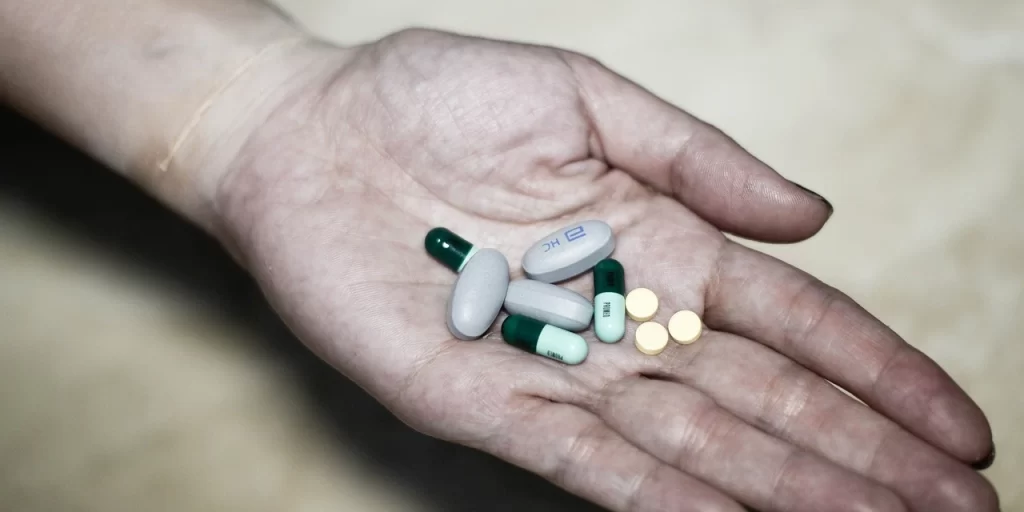Bipolar Disorder: Exploring the Signs, Symptoms, and Treatment Options
Bipolar disorder, also known as manic-depressive illness, is a complex and challenging mental health condition that affects millions of individuals worldwide. Understanding the signs, symptoms, and available treatment options is crucial in effectively managing this disorder.
Characterized by extreme fluctuations in mood and energy levels, bipolar disorder can often be misunderstood or misdiagnosed. Individuals with this condition experience periods of intense depression, commonly known as the “lows,” alternating with manic episodes, known as the “highs.” These mood shifts can significantly impact daily life, relationships, and overall well-being.
Recognizing the signs and symptoms of bipolar disorder is the first step toward seeking appropriate treatment. Common indicators include prolonged periods of sadness or irritability, increased energy levels, impulsive behavior, and difficulty concentrating. It’s important to remember that bipolar disorder affects each individual differently, and therefore, not all symptoms may be present.
Treatment options for bipolar disorder typically involve a combination of medication, psychotherapy, and lifestyle changes. Working closely with healthcare professionals is essential to developing a personalized treatment plan that suits the individual’s needs.
In this article, we will delve deeper into the intricacies of bipolar disorder, unraveling its signs, symptoms, and exploring effective treatment options.
What is bipolar disorder?
Bipolar disorder is a psychological disorder characterized by extreme fluctuations in mood and energy levels. Individuals with this condition experience periods of intense depression, commonly known as the “lows,” alternating with manic episodes, known as the “highs.” These mood shifts can significantly impact daily life, relationships, and overall well-being.
Bipolar disorder is a chronic condition, meaning it requires ongoing management and treatment. It affects both men and women and typically emerges in late adolescence or early adulthood. While the exact cause of bipolar disorder is unknown, it is believed to be a combination of genetic, environmental, and neurological factors.
Understanding the different types of bipolar disorder
There are several different types of bipolar disorder, each characterized by varying patterns of mood episodes. The most common types include bipolar I disorder, bipolar II disorder, and cyclothymic disorder.
Bipolar I disorder is characterized by manic episodes that last for at least seven days or are severe enough to require hospitalization. Depressive episodes may also occur and typically last for two weeks or more.
Bipolar II disorder is characterized by depressive episodes alternating with hypomanic episodes, which are less severe than full-blown manic episodes. Hypomanic episodes may last for at least four days.
Cyclothymic disorder is a milder form of bipolar disorder, characterized by numerous periods of hypomanic symptoms and depressive symptoms that last for at least two years.
Common signs and symptoms of bipolar disorder
Recognizing the signs and symptoms of bipolar disorder is essential for early detection and management. While symptoms can vary from person to person, there are common indicators to look out for.

- Depressive episodes involve prolonged periods of:
– Sadness
– Hopelessness
– Irritability - Individuals may lose interest or pleasure in activities they once enjoyed.
- They may experience changes in:
– Appetite
– Sleep patterns - Difficulty concentrating and making decisions is common during depressive episodes.
- In severe cases, individuals may have suicidal thoughts.
- Manic episodes involve:
– Elevated mood
– Increased energy levels
– Heightened self-confidence - Individuals may engage in impulsive behavior, including:
– Excessive spending
– Risky sexual encounters
– Substance abuse - Racing thoughts, rapid speech, and difficulty sleeping are common during manic episodes.
The impact of bipolar disorder on daily life
Bipolar disorder can have a profound impact on various aspects of daily life. Extreme mood swings and energy fluctuations can disrupt relationships, affect work or school performance, and hinder overall functioning.
- During depressive episodes, individuals may struggle with feelings of worthlessness, isolation, and a loss of interest in activities they once enjoyed. The lack of energy and motivation can make it challenging to complete even simple tasks, leading to a decline in productivity.
- Manic episodes, on the other hand, can lead to impulsive decision-making and reckless behavior, which can have severe consequences. Relationships may be strained due to the erratic behavior and difficulty in maintaining stable connections.
The importance of early diagnosis and treatment
Early diagnosis and treatment are crucial in effectively managing bipolar disorder and minimizing its impact on daily life. However, it can be challenging to diagnose bipolar disorder due to its complex nature and the overlap of symptoms with other mental health conditions.
If you suspect that you or a loved one may have bipolar disorder, it is essential to seek professional help. A mental health professional, such as a psychiatrist or psychologist, can conduct a comprehensive evaluation to determine the presence of bipolar disorder and develop an appropriate treatment plan.
Treatment options for bipolar disorder
The treatment of bipolar disorder typically involves a combination of medication, psychotherapy, and lifestyle changes. Working closely with healthcare professionals is essential to developing a personalized treatment plan that suits the individual’s needs.
1.) Medications for managing bipolar disorder
Medications are often prescribed to stabilize mood and prevent or reduce the frequency and intensity of mood episodes. Commonly prescribed medications include:
mood stabilizers– are effective in reducing the severity and frequency of manic and depressive episodes. The most common is lithium or valproate
antipsychotics– such as quetiapine or risperidone, which may be prescribed to manage severe manic symptoms or psychotic features.
antidepressants–may also be utilized, but they are typically prescribed in combination with mood stabilizers to prevent triggering manic episodes.

2.) Psychotherapy and counseling for bipolar disorder
Psychotherapy, or talk therapy, is an essential component of bipolar disorder treatment. It can help individuals better understand their condition, develop coping strategies, and improve overall functioning.
Cognitive-behavioral therapy (CBT) is commonly used to treat bipolar disorder. It focuses on identifying and changing negative thought patterns and behaviors associated with mood episodes. Interpersonal and social rhythm therapy (IPSRT) may also be utilized to help individuals establish stable daily routines and improve relationships.

Lifestyle changes and self-care tips for managing bipolar disorder
In addition to medication and therapy, lifestyle changes and self-care practices play a vital role in managing bipolar disorder.
Maintaining a regular sleep schedule is crucial for stabilizing mood and reducing the risk of mood episodes. Establishing a routine that includes regular exercise, healthy eating, and stress management techniques can also contribute to overall well-being.
It is essential to avoid substance abuse, as drugs and alcohol can worsen mood symptoms and interfere with medication effectiveness. Building a strong support system of family, friends, and support groups can provide invaluable emotional support and understanding.
Medications for managing bipolar disorder
Living with bipolar disorder can be challenging, but there are numerous resources available to support individuals and their loved ones.
National and local mental health organizations often provide educational materials, support groups, and helplines for individuals with bipolar disorder. Online communities and forums can also provide a sense of connection and support.
Additionally, loved ones of individuals with bipolar disorder can benefit from support groups or therapy sessions specifically designed to address their unique needs and challenges.
In conclusion, bipolar disorder is a complex mental health condition characterized by extreme mood swings and energy fluctuations. Recognizing the signs and symptoms of bipolar disorder is crucial for early diagnosis and effective treatment. With a combination of medication, psychotherapy, and lifestyle changes, individuals with bipolar disorder can lead fulfilling and productive lives. Seeking support from healthcare professionals, building a strong support system, and staying educated about the condition can help individuals effectively manage bipolar disorder and minimize its impact on daily life.
Psychotherapy and counseling for bipolar disorder
Managing bipolar disorder often involves a combination of medications to stabilize mood and prevent manic and depressive episodes. The goal of medication is to help individuals maintain a balanced state and reduce the frequency and intensity of mood swings. There are several types of medications commonly prescribed for bipolar disorder:
- Mood stabilizers: These medications, such as lithium and valproic acid, are the cornerstone of bipolar disorder treatment. They help regulate mood swings and prevent manic and depressive episodes. Mood stabilizers work by balancing the levels of neurotransmitters in the brain and can be highly effective in managing symptoms.
- Antipsychotics: In some cases, antipsychotic medications may be prescribed to help control severe manic or psychotic symptoms. These medications can help reduce agitation, hallucinations, and delusions. Commonly prescribed antipsychotics for bipolar disorder include risperidone, olanzapine, and quetiapine.
- Antidepressants: While antidepressants are not typically prescribed as standalone treatment for bipolar disorder, they may be used cautiously in combination with mood stabilizers. However, it is important to monitor their use as they can trigger manic episodes in some individuals.
- Anti-anxiety medications: Anxiety symptoms are common in individuals with bipolar disorder, and anti-anxiety medications may be prescribed to help manage these symptoms. Medications such as benzodiazepines can help reduce anxiety and promote relaxation.
It is important to note that medication regimens for bipolar disorder are highly individualized, and finding the right combination of medications may take time. Regular monitoring and adjustments by a healthcare professional are essential to ensure optimal treatment outcomes.
Lifestyle changes and self-care tips for managing bipolar disorder
In addition to medication, psychotherapy and counseling play a crucial role in the management of bipolar disorder. These therapeutic approaches can help individuals gain insight into their condition, develop coping strategies, and improve overall well-being. Some common types of therapy used in the treatment of bipolar disorder include:
- Cognitive-behavioral therapy (CBT): CBT focuses on identifying and changing negative thought patterns and behaviors that contribute to mood swings. This therapy helps individuals develop healthier coping mechanisms, improve problem-solving skills, and establish a stable routine.
- Interpersonal and social rhythm therapy (IPSRT): IPSRT aims to stabilize daily routines and improve interpersonal relationships. By establishing regular sleep patterns, mealtimes, and social activities, individuals can better manage their symptoms and reduce the risk of relapse.
- Family-focused therapy (FFT): This therapy involves the entire family in the treatment process, focusing on improving communication, reducing conflict, and providing education and support. Family involvement can greatly enhance treatment outcomes and help individuals with bipolar disorder maintain stability.
- Support groups: Joining support groups or attending group therapy sessions can provide individuals with bipolar disorder a sense of community and understanding. Sharing experiences, challenges, and strategies with others who are going through similar struggles can be immensely beneficial.
Psychotherapy and counseling can be highly effective in helping individuals with bipolar disorder develop the necessary skills to manage their condition and lead fulfilling lives.
Support resources for individuals with bipolar disorder and their loved ones
In addition to medication and therapy, making certain lifestyle changes and adopting self-care practices can greatly contribute to the management of bipolar disorder. Here are some tips to consider:
- Establish a routine: Maintaining a regular daily schedule can help stabilize mood and reduce the risk of mood swings. Set consistent sleep and wake times, meal times, and exercise routines to promote stability.
- Manage stress: Stress can trigger or worsen symptoms of bipolar disorder. Implement stress-reduction techniques such as deep breathing exercises, meditation, and engaging in activities you enjoy.
- Get regular exercise: Physical activity has been shown to have numerous benefits for mental health. Engage in activities such as walking, jogging, yoga, or dancing to improve mood and overall well-being.
- Practice good sleep hygiene: Adequate sleep is crucial for managing bipolar disorder. Establish a relaxing bedtime routine, create a comfortable sleep environment, and avoid stimulants like caffeine close to bedtime.
- Avoid substance abuse: Drugs and alcohol can worsen the symptoms of bipolar disorder and interfere with medication effectiveness. It is important to avoid substance abuse to maintain stability.
- Eat a balanced diet: A nutritious diet can support overall well-being and help regulate mood. Focus on consuming a variety of fruits, vegetables, whole grains, lean proteins, and healthy fats.
Remember, self-care is an ongoing process, and it may take time to find the strategies that work best for you. Be patient with yourself and seek support from healthcare professionals or support networks when needed.
How San Antonio-Ventana Mental Health Can Help?
At Ventana Mental Health, our psychiatrists has decades of experience in treating mental health conditions, including bipolar disorder. We offer a range of treatment programs. These programs are tailored to meet each patient’s unique needs, ensuring the most effective care.
For further information on bipolar disorder treatment, please contact us at (210) 446-7977. We are available 24/7 to answer your questions and provide you with the support and guidance you need to manage bipolar disorder.
